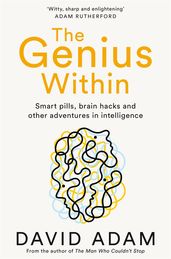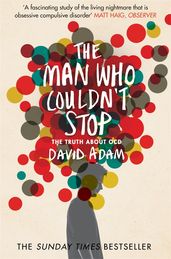Synopsis
The Sunday Times bestseller
‘Life-changing work' - Matt Haig, author of The Midnight Library
Have you ever stood at the edge of a tall building and felt the terrifying urge to jump? Or caught yourself imagining swerving into oncoming traffic for no reason at all? You’re not broken — and you’re not alone.
In The Man Who Couldn't Stop, writer and journalist David Adam takes us on a gripping journey into the darkest corners of the mind. Blending science, history and raw personal experience, this extraordinary book explores the hidden thoughts we all have but rarely admit.
With unflinching honesty and unfaltering humour, Adam reveals what it’s like to live with obsessive-compulsive disorder — a condition he has battled for over two decades. From a schoolgirl driven to eat a wall of her house, piece by piece, to two brothers who are buried alive by the things they’ve hoarded, he asks: when does a fleeting thought become a trap we can’t escape from?
‘I urge anyone to buy it’ - The Sunday Times
‘Just buy it now’ - Adam Rutherford, author of A Brief History of Everyone Who Ever Lived
‘Superb’ - The Times
‘Brave, funny and illuminating’ - The Guardian
Details
Reviews
Clear-sighted and eminently accessible . . . a fundamentally important book that will bring a breath of fresh understanding to sufferers - as well as mental-health professionals, and family and friends of anyone who exhibits symptoms of OCD. I urge anyone to buy it. It will make you think again
A fascinating study of the living nightmare that is obsessive compulsive disorder . . . one of the best and most readable studies of a mental illness to have emerged in recent years . . . an honest and open and, yes, maybe life-changing work
Combines a scientific account of OCD from ancient times to the most recent research with passages of tenderly written memoir
The Man Who Couldn't Stop is quite simply book of the year, on living with OCD: just buy it now

